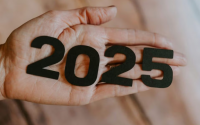30 September 2007Peter Applebome
When she moved to the United States from Germany seven years ago, Angela Neigl brought with her the energy-conscious sensibilities of life in Europe. You drove small cars. You recycled every can, lid and stray bit of household waste. You brought your own reusable bags or crate to the market rather than adding to the billions of plastic bags clogging landfills, killing aquatic creatures on the bottoms of oceans and lakes, and blowing in the wind.
But, alas, there she was Friday morning, lugging her white plastic bags from the Turco’s supermarket, like everyone else, figuring there was no fighting the American way of waste.
“When I was first here, I brought my own bags to the market, but they would stuff the groceries in the plastic bags anyway. Finally, I gave up,” she said. “People are very nice here. It’s more relaxed. But the environmental thing is a little scary.”
You could have learned a lot, I guess, about the politics of global warming from the lukewarm response President Bush received last week from skeptical delegates at his conference on climate change and energy security. But in the most micro of ways, you can learn plenty any day of the week at the Turco’s or the Food Emporium in Yorktown Heights, the Super Stop & Shop in North White Plains, the A.&P. or Mrs. Green’s Natural Market in Mount Kisco or just about anywhere Americans shop in Westchester County and beyond.
And the lesson for now pretty much seems to be that no matter how piddly the effort, no matter how small the bother, well, it’s too much bother.
“I know,” said Vicki Strebel, another Turco’s shopper, when asked about bringing a reusable bag rather than taking home the throwaway plastic. “I should, but I don’t. I’m sorry. I’m too busy. Things are too crazy. If I got the bags, I’d probably forget to put them in the car.”
Plastic bags are not the biggest single issue out there, and no expert on global warming would suggest solutions rest wholly with decisions made by individual consumers. On the other hand, it is estimated that the United States goes through 100 billion plastic bags a year, which take an estimated 12 million barrels of oil to produce and last almost forever. And if individual decisions can’t solve the problem, the wrong ones can certainly compound it.
Once upon a time, the question was plastic or paper, which had its own somewhat uncertain calculus of virtue and waste. Now, it has begun to dawn on people that you don’t need either. Most supermarkets these days sell sturdy, reusable bags for 99 cents that people can use instead of plastic ones.
Except almost no one does. For lots of different reasons. They buy them and forget to use them. (Truth in advertising: Count me among the serial offenders.) They figure they can reuse the plastic bags for garbage and dog-walking duties. They find them unhygienic; we fell in love with the throwaway culture for a reason. One reusable bag can hold the contents of several plastic ones, but that’s too heavy for the elderly or the frail to carry. It’s just not what we do.
Of course, there are exceptions. Trader Joe’s, for example, offers a variety of reusable bags and has raffles for free food or gift certificates for people who bring their own bag, so people use them.
San Francisco banned petroleum-based plastic bags in large supermarkets and pharmacies, which, depending on your mind-set, was visionary leadership or the green nanny state in action.
After Ireland enacted a stiff tax on the bags in 2001, consumption fell by 90 percent.
Mrs. Neigl says when visitors come from Germany, they’re baffled by the local customs, the tolerance of such stupendous, routine waste.
But having lived here for a while she gets it: all that open space, the lustrous green acres just 35 miles from Manhattan. “I guess people aren’t so concerned about the environment because they have so much of it,” she said.
Of course, people are aware it’s not that simple. But all too often awareness changes before behavior does.
At most of the grocers I visited you can find a quite remarkable Time magazine special issue on global warming. On its cover is a heartbreaking picture of a polar bear on a lonely frozen peninsula surrounded by what was once ice and is now water.
It would be a downer for supermarket décor, but in the absence of political leaders from the White House on down hammering home the message that the free ride of endless excess is about to run off the cliff, maybe it takes that kind of image on giant posters next to the cornflakes to get people’s attention.
Plastic bags are a small part of the picture. (Sport utility vehicles, McMansions, long commutes, anyone?) But you think, if we can’t change our behavior to deal with this one, we can’t change our behavior to deal with anything.






